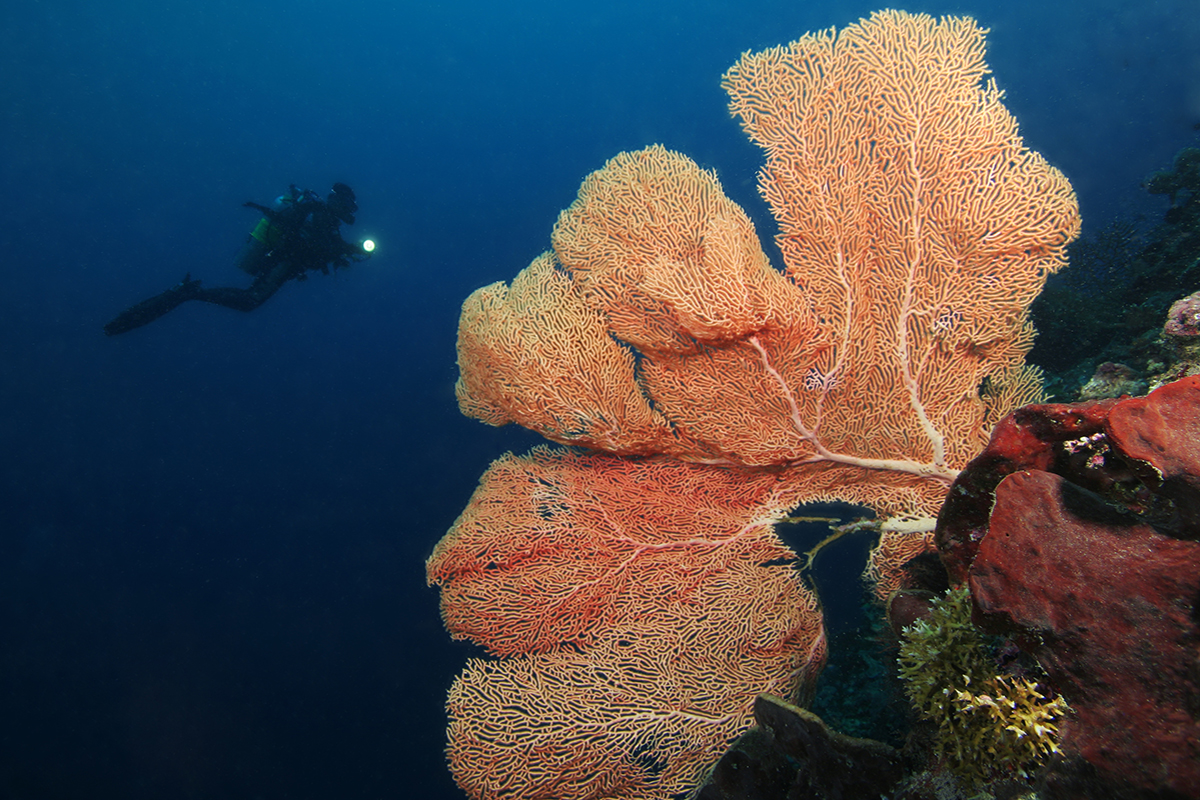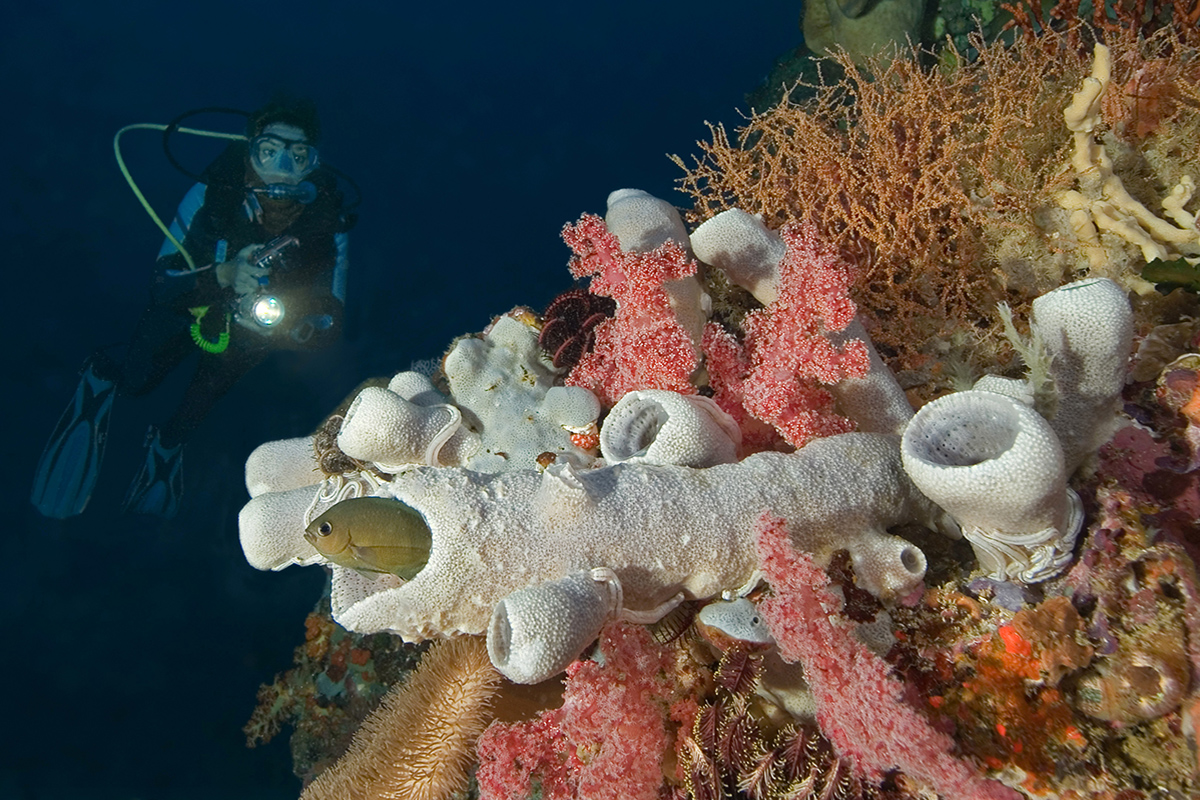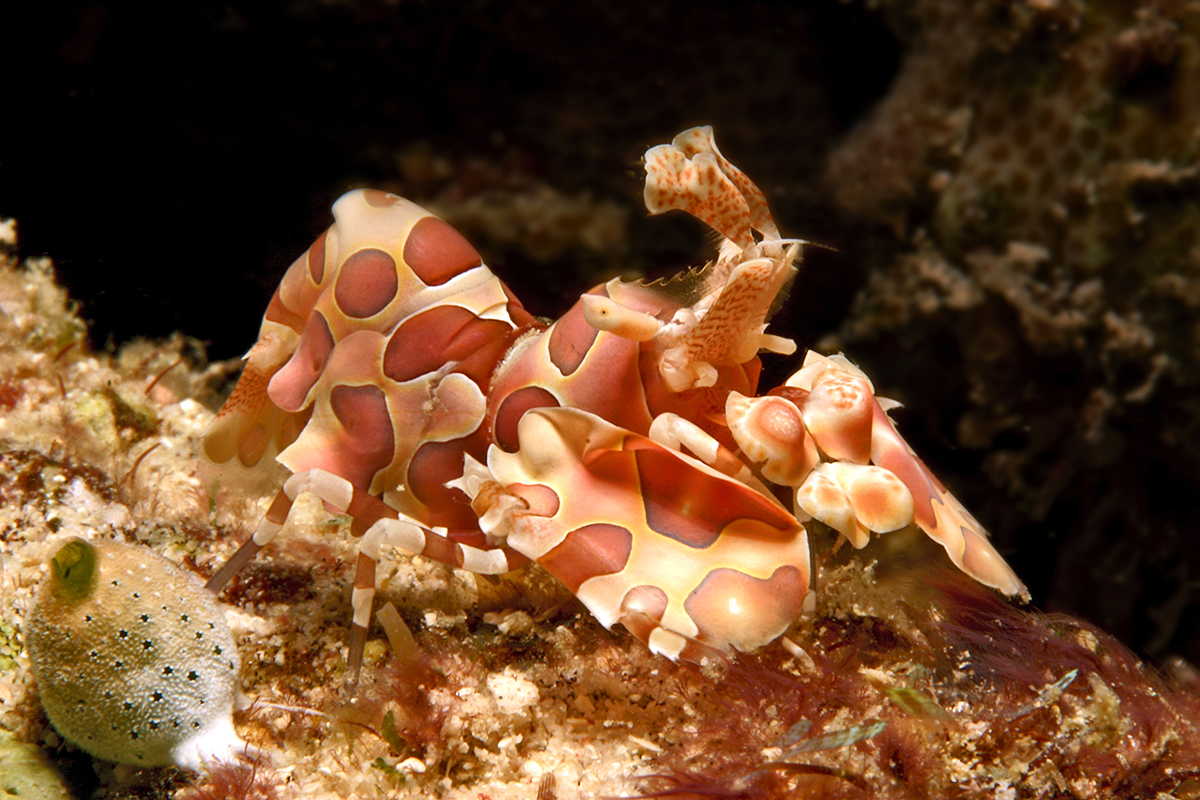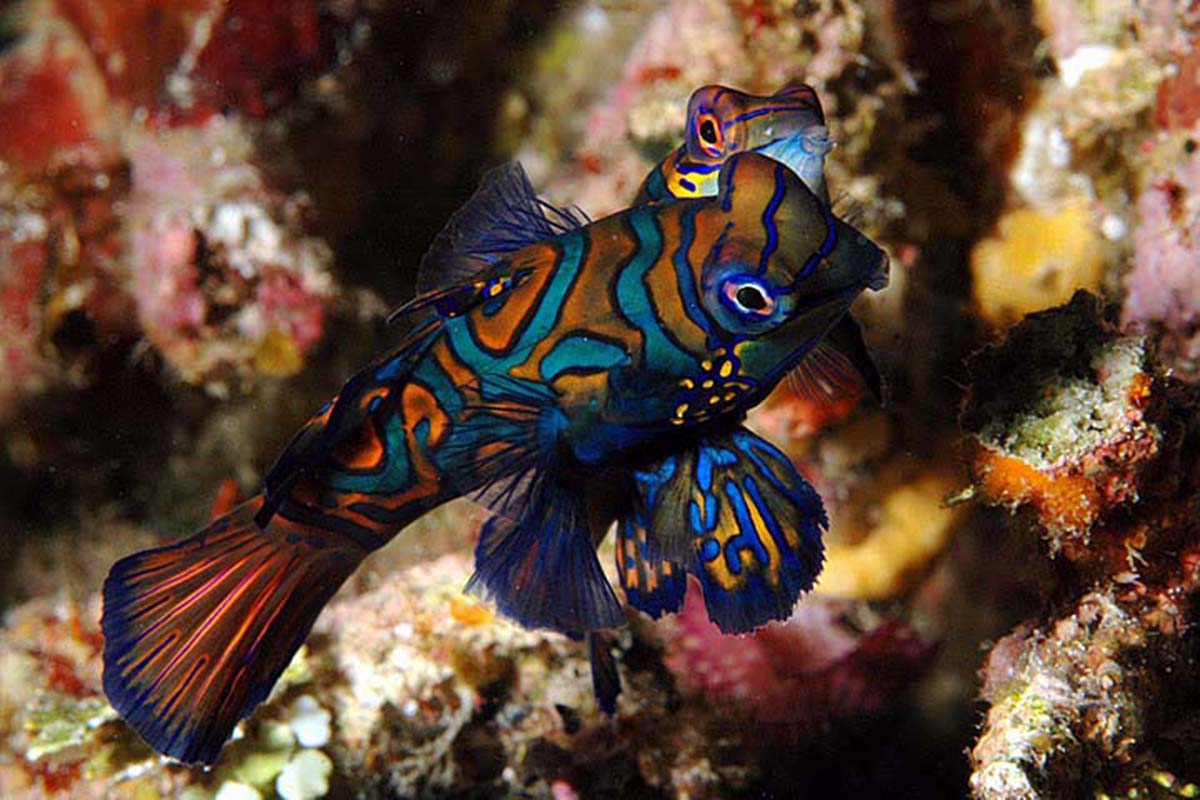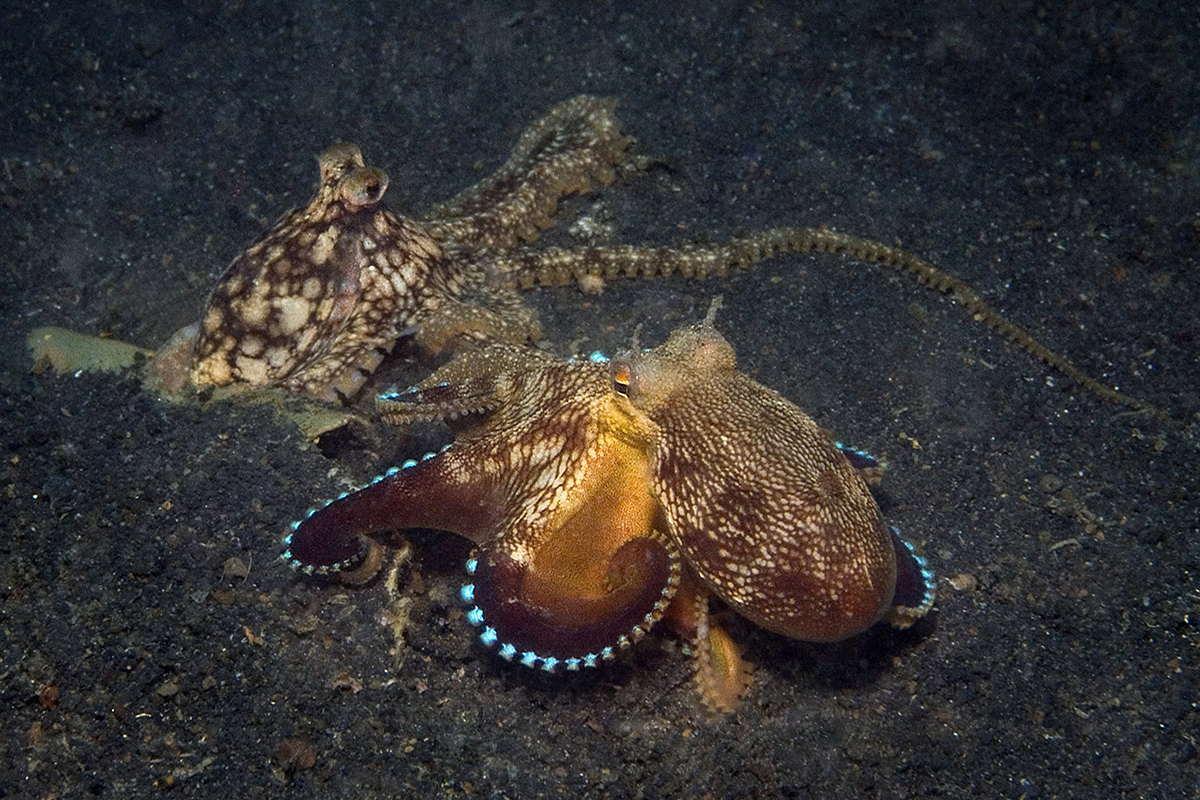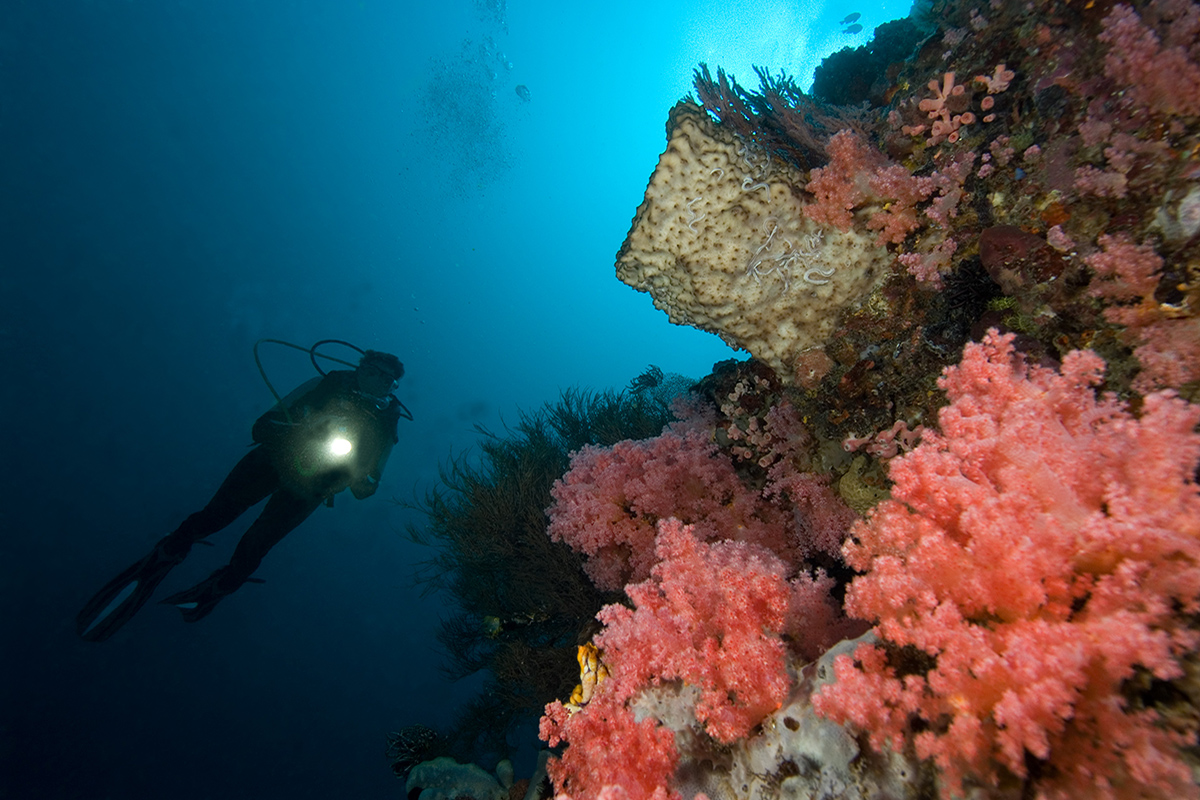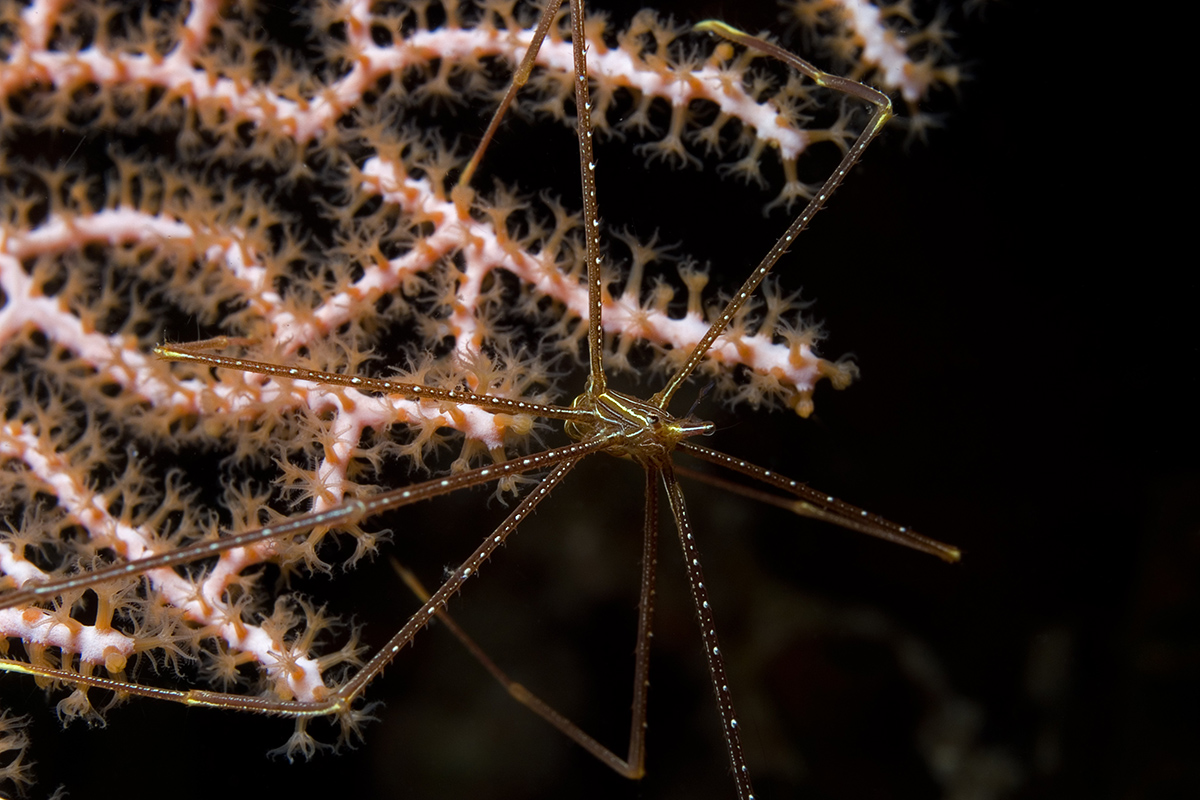Night Diving at Gangga Island, North Sulawesi
Night diving is considered by many divers to be the most spectacular way to see the widest variety of marine life. Creatures you might not ever see on a daytime dive come out at night so you’ll see the coral reefs from a whole different point of view.
Why Dive at Night?
If you’ve never been diving at night you might frightened or intimidated by diving in the dark. The ‘what’s out there in the dark’ factor is high, but one you are in the water it’s so dramatic you’ll probably forget about what you can’t see.
So what’s so great about diving at night? Well, for one thing coral looks completely different at night. When the sun goes down coral polyps open to feed and draw nutrients from the passing currents. These polyps are colourful and make the reef look more vibrant than ever.
The way light travels also has a lot to do with the change in how the coral looks. When light has to travel through water it loses colour. When you point a flashlight at something close the light has much less distance to travel and is filtered much less, keeping most of its colour spectrum.
You’ll also find that the species you see on the reef are different. Schools of fish and turtles go to sleep and other creatures come out to play. Sharks, octopus and many other marine animals are much more active at night than during the day.
Diving at night around Gangga Island, North Sulawesi
Gangga Island’s house reef is an amazing place to find small critters and night diving here is truly beautiful. The volcanic slopes are covered with soft and table corals, as well as sponges and fans galore.
At night you will see the lively reef full of shrimp, lobsters, several species of scorpion fish and sometimes cuttlefish and octopus. In fact, at night you’re likely to see more of these creatures than during the day.
To get the most out of your night dive, Gangga Divers offers daily trips to Lihaga Island where Mandarin fish gather to mate. The males of this brightly coloured species come out every evening around sundown to dance for the females. Once a female choses her mate, she will join him and you can watch as they release sperm and a cloud of eggs together. If you’d like to learn more about this unique mating ritual read out article Watching the Incredible Mating Dance of the Mandarinfish at Gangga Island.
While staying at Gangga Island Resort & Spa you can also dive around nearby Bunaken Island. The walls here come alive at night and are crawling with crabs and crustaceans. The mimic octopus, many different frogfish, ghost pipefish and flamboyant cuttlefish are often spotted here at night. You have to keep an eye out for many of the critters as they are masters of camouflage.
Diving safely at night
Diving at night may seem like your worst nightmare but if you follow some simple safety steps you can be confident and enjoy yourself. If you’re new to night diving it’s a good idea to get in the water before sunset. This gives you time to adjust as the sun sets and it get darker under the water.
Once its dark communication with your fellow divers can be difficult. It’s imperative that you agree on what signals you will be using before you get in the water. If you are worried about this you should attach a small light or a chemical stick to the first stage of you regulator. This will give you a small amount of light even when you flashlight is off. This way you can always be seen by the others divers in your group.
If you were to lose your dive buddy you would follow the lost buddy procedure as you would on any other dive.
Are you ready to dive at night?
Night dives are truly one of the best ways to see the oceans at their most active. The colours and vibrance of the corals are intensified and species you might not have seen during the day come out. Does the thought of night diving excite or terrify you? We’d love to know so leave us a comment below!

